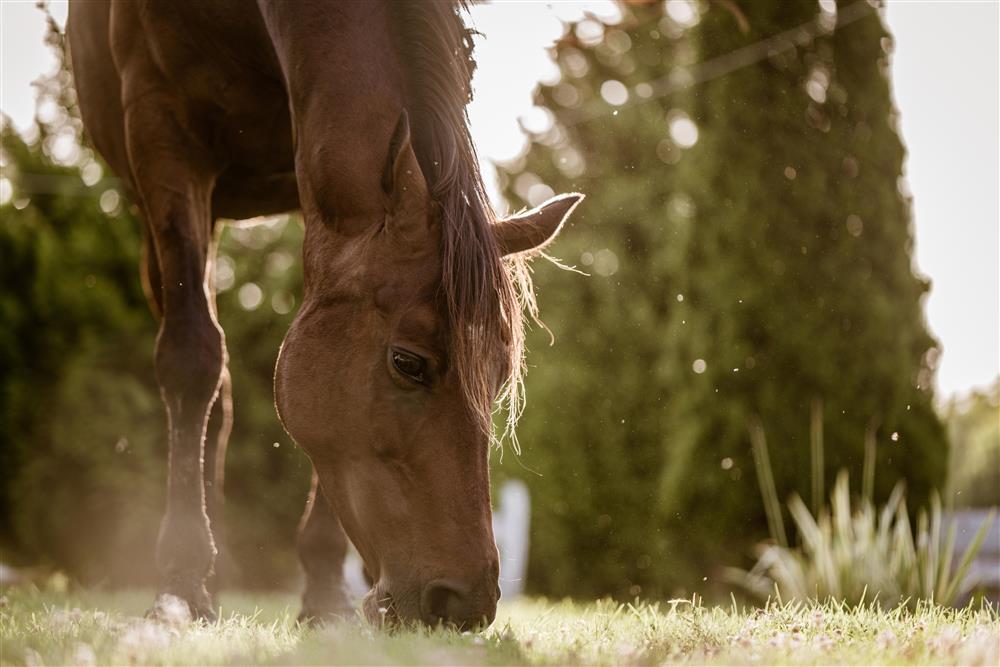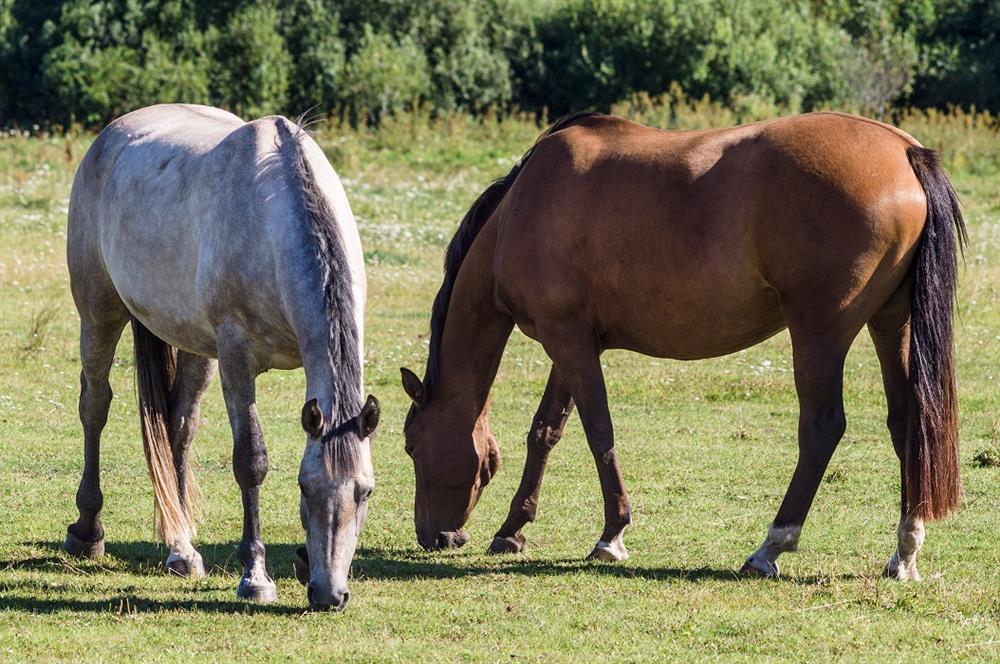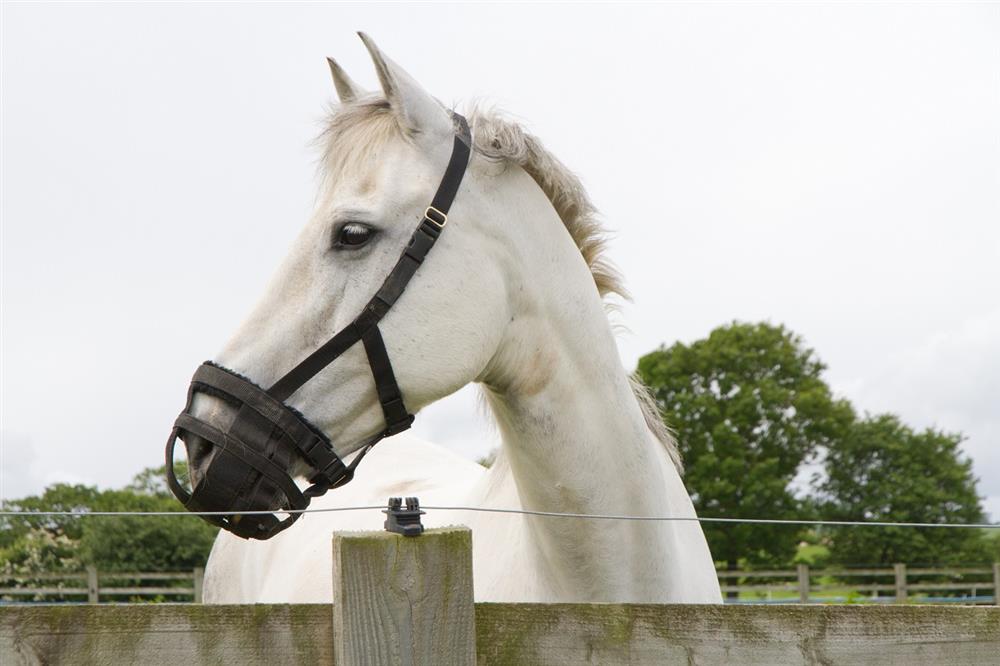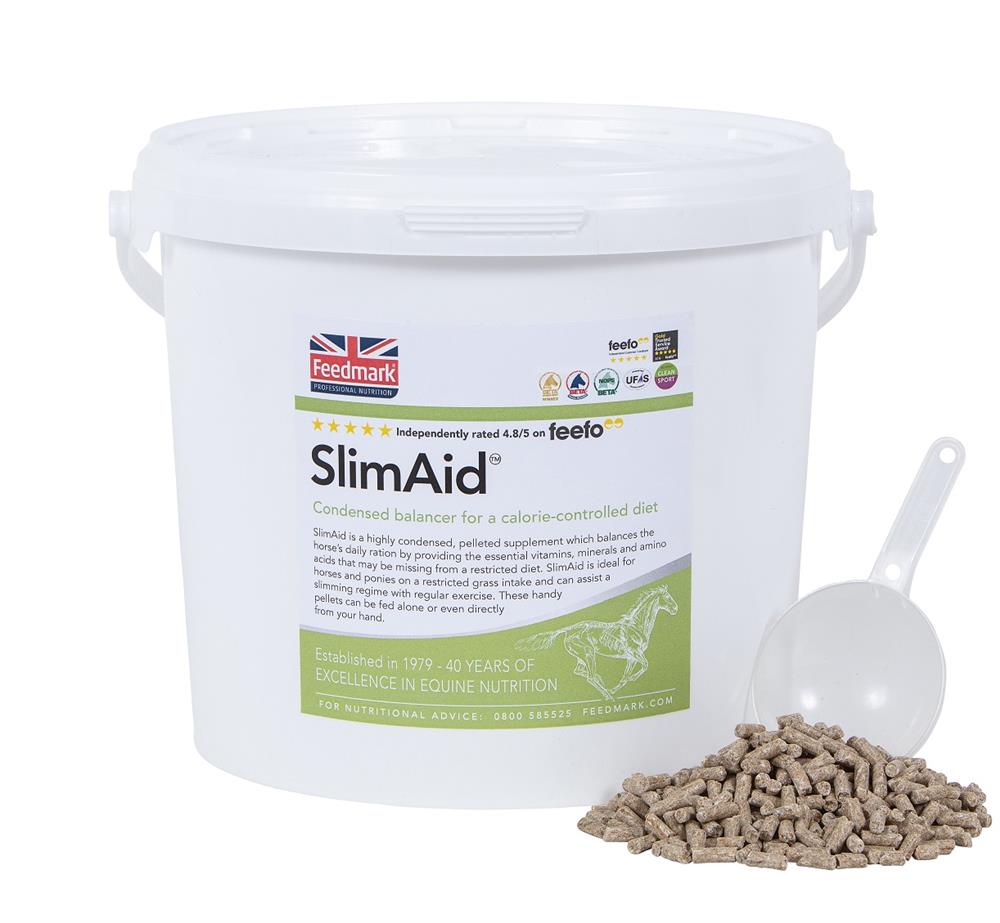Flushes of fresh grass can be a common but dangerous occurrence at this time of year. Due to the recent weather, a dramatic growth in grass is causing some horses and ponies to gain undesired weight.
Keeping the ‘good doer’ at an ideal weight is never an easy task, slimming down an already obese pony or horse is even more difficult. However, with appropriate management and care, the correct weight and body condition for your horse is achievable.

The risk of an overweight horse...
Overweight horses and ponies are becoming increasingly common due to various influences, especially with the current climate. Obesity in equines can increase the likelihood of issues developing, such as Laminitis, Cushing's Disease (Pituitary Pars Intermedia Dysfunction - PPID) and Equine Metabolic Syndrome (EMS).
Cushing's Disease is a condition associated with an abnormality in the pituitary gland in the horse. Many horses with PPID can often end up suffering also from Laminitis.
EMS is a disorder in which horses (particularly ponies) have an unusual insulin response to the sugars in grass, which can again increase the risk of Laminitis.
Both of these conditions are generally seen in overweight horses and appear to be linked with Laminitis.

Tips to manage your horse’s weight...
Body Condition Scoring (BCS): Keep a record of your horse’s weight, BCS is ideal to offer an indication as to whether your horse’s weight management needs to be re-evaluated.
Grazing muzzle: This can be a very handy piece of equipment, allowing your horse to be turned out as normal (allowing more movement and exercise than in a stable) but restricting the grass intake to prevent overindulgence. They should be used with care when the horse can be monitored and removed regularly to check for any rubbing or sore spots.

Restricted grazing: You can restrict an area of grazing using temporary posts and electric tape to create strip grazing. Make sure the area is an appropriate size for the horse, and there is access to adequate shelter and fresh water.
Slow the intake of forage: Use a trickle feeding net or split forage into multiple sections throughout the day and place in different areas of the field or stable where possible. Furthermore, try to soak your hay (for at least 4 hours if possible) as this will reduce the sugar content in the forage.
Increase exercise: Whether you choose groundwork, polework or ridden exercise, this can help your horse to release some excess energy and burn calories to aid weight loss. Gradually building the intensity and duration of the exercises will further assist in your horse’s fitness levels and condition.
Unnecessary rugging: Most horses are naturally very well-equipped to cope with the weather without the requirement of extra protection from rugs. When horses are provided with warmth from rugs, they will expend much less energy on keeping warm. Consider whether your horse really needs to be wearing a rug as leaving them naked may help them to burn excess calories and support weight loss.
Slow and steady changes: Changes to your horse’s routine, workload and diet should always be introduced gradually to avoid any injuries, stress or digestive issues.
Supplementation: If your horse is on a restricted diet to lose weight but you would still like to provide the essential daily vitamins and minerals to maintain health and wellbeing, consider supplementation from a product such as SlimAid. This helpful balancer can be fed directly from the hand or bowl as it is pelleted, meaning no hard feed is required.
Alternatively, you could look at Prolamin, a two-part formulation which contains a blend of powerful herbs to aid circulation and capillary wall health to support blood supply to the hoof. The second part is a pelleted balancer providing the essential vitamins, minerals and amino acids that may be missing from a restricted ration.
Help is available: Remember that our Science and Nutrition Department are available to help if you would like some advice on your horse’s diet. We are open seven days a week, so please don’t hesitate to call freephone 0800 585525 or email [email protected].


